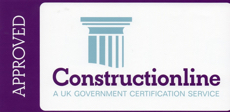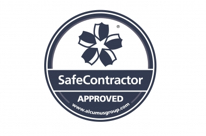Plasterboard is actually designated as non-hazardous waste. It is, however, officially banned from landfill sites and has been in England since 2005. This is due to the gypsum found in plasterboard, that when wet or is mixed with biodegradables such as food, it can produce hydrogen sulphide. Hydrogen sulphide is a toxic gas that can build up and cause acid rain.
The UK uses 200 million m2 of plasterboard and 60 million bags of plaster each year. 60% is used in the construction of homes and commercial buildings, 40% for repair, maintenance and improvement. Up to 1.3 million tonnes of plasterboard waste is generated within the new-build construction and refurbishment sectors each year, and approximately 7.5% of all new plaster and plasterboard is wasted before even being used (the equivalent of 15 million m2 of plasterboard and 450,000 bags of plaster!).
How do you dispose of hazardous plasterboard?
Because of the problems that plasterboard can have when mixed with other waste, special care needs to be taken, both when recycled or disposed of. If recycled, it needs to be separated from other waste, so as not to mix and create hydrogen sulphide.
When being disposed of in a landfill, it needs to be contained within dedicated monocells. A monocell is a type structure, that consists of a skeleton, facade panels and internal wall panels. This is used to hold and contain the plasterboard waste so as it does not interact with other waste.
Due to the problems it can cause, this is why such care needs to be taken when collecting plasterboard waste, which is why some waste disposal companies won’t deal with plasterboard waste at all, and those that do generally collect the plasterboard separately from any other waste.
Can plasterboard be recycled?
Yes, plasterboard can be recycled. Here at Cartwrights, we divert approximately 4,000 tonnes of different types of plasterboard waste every year for recycling from our waste facilities in Telford, Shropshire.
We provide standalone skips for just plasterboard or we do accept mixed load skips. If a mixed load is received it is sent through a mechanical separation process. Once separated it is then stored, then transported for onward recycling to a number of licenced plasterboard recyclers we partner with across England.
For more information, get in touch with us.





